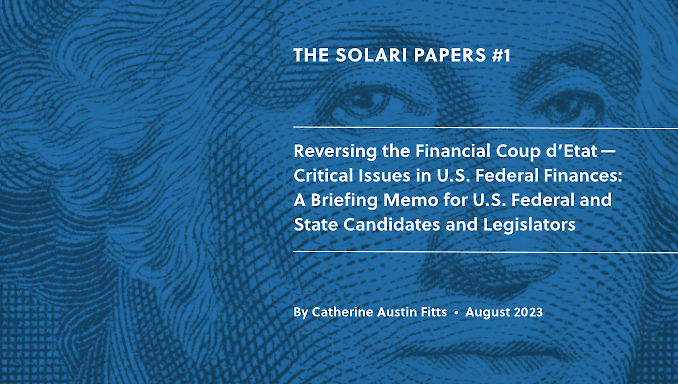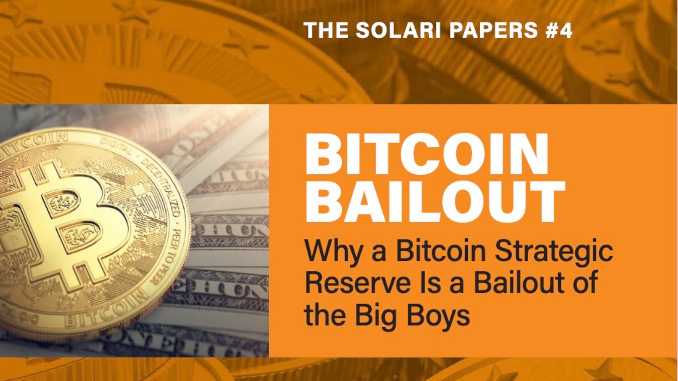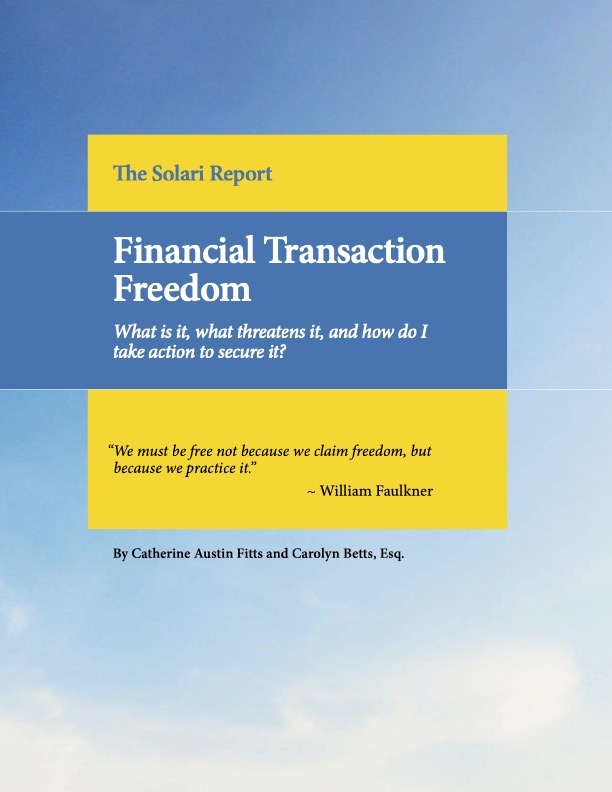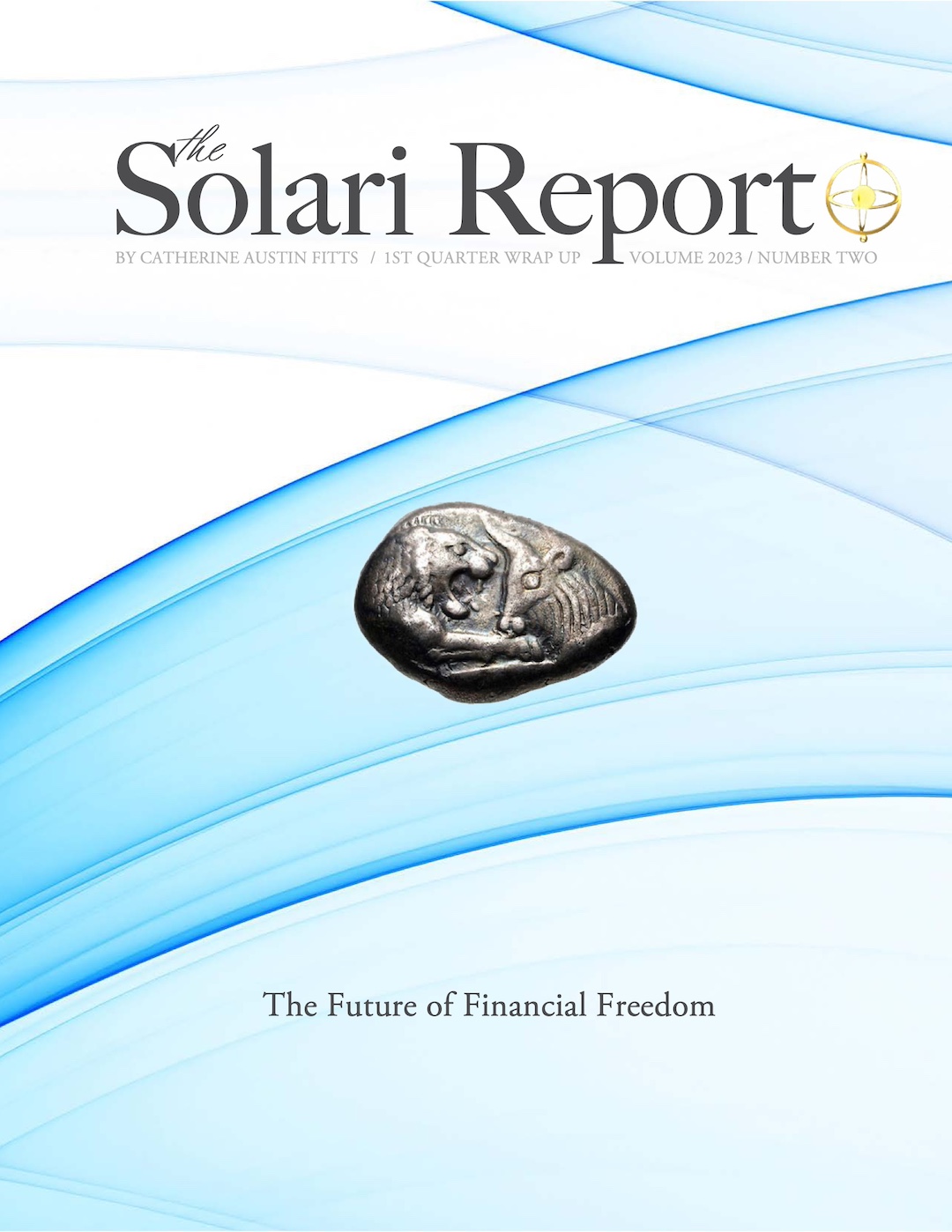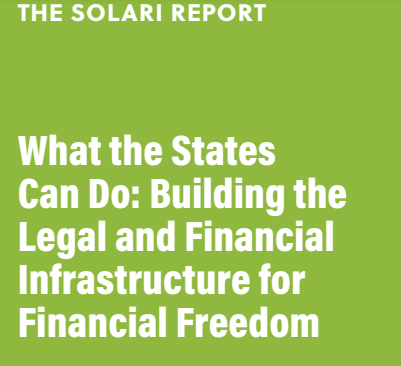The Solari Report
Memo Collection
Financial transaction freedom is the ability to use multiple options to make contracts and effect transactions on a timely basis at reasonable cost without interference. There are numerous characteristics that are desirable for individuals, businesses, enterprises, and governments in an environment of financial transaction freedom.
2.
The Solari Papers #2: U.S. State Bullion Depositories
The purpose of this paper is to address issues related to integrity of operations, including, importantly, those involving private parties. The goal of achieving such integrity is to ensure that the depository enhances, rather than compromises, state sovereignty and financial resiliency.

3.
The Solari Papers #3: Musings on the Department of Defense
This paper provides some musings on the Department of Defense
and its finances in the hopes that this may help identify effective ways to push to enforce the law as expressed by the Constitution — that is, as opposed to new “rules”
invented under the pretense of an emergency
(DOD’s Operation Warp Speed) or national security threat (such as in the case of the Patriot Act, which I sometimes refer to
as the “Consolidation and Concentration of Cash Flow Act”).
4.
The Solari Papers #4: BITCOIN BAILOUT: Why a Bitcoin Strategic Reserve Is a Bailout of the Big Boys
In this paper, we discuss the nuts and bolts of Bitcoin and explain how we can see why large Bitcoin holders would want federal and state buying programs to help them increase prices and create a sufficiently liquid market to make it possible to exit their positions, particularly before the Bitcoin ecosystem becomes unsustainable and the competition for increasingly scarce energy resources and the growing
environmental damage become more widely understood.
6.
The future of financial Freedom
Preserving financial transaction freedom is one of our main focuses at the Solari Report in 2024. If you want to understand what threatens financial transaction freedom—and the actions that individuals, families, investors, and state and local governments can take to secure it—this Wrap Up is essential reading.
7.
what the states can do
For well over a year, the Solari Report has been working to determine how state legislatures in the U.S. can revolutionize their state’s legal and financial infrastructure to ensure financial freedom and liquidity within their jurisdiction.
“What the States Can Do: Building the Legal and Financial Infrastructure for Financial Freedom” is a powerhouse collection of resources designed to help busy legislators make the most effective use of their time and sizable constitutional powers. The document presents an overview of steps that some U.S. states already have taken along with steps that have been recommended or considered to preserve financial freedom and state sovereignty.
8.
working successfully with state leaders
This practical document explains the benefits—and even more importantly, the “how-to’s”—of building relationships with your state legislators and other state leaders. In this document we explore “who’s who and what’s up in your district”, how to understand your legislators’ ecosystem, how bills are sponsored and run, and ways that you can support the legislators and other state leaders who understand the escalating threats to financial transaction freedom.
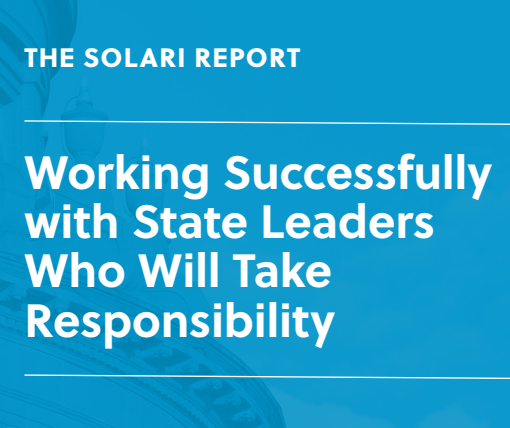
9.
Using the U.S. States’ Constitutional
Powers to Preserve Sovereignty and
Financial Freedom:
How We Can Stop the Coup
Using the U.S. States’ Constitutional Powers to Preserve Sovereignty and Financial Freedom builds on a larger body of work published by the Solari Report over the past several years, including, among others, our reports on The Future of Financial Freedom (tackling the complex topic of sovereign state banks) and Taxation: With or Without Representation? (addressing taxpayers’ responsibility to ensure that tax dollars are spent lawfully and productively). Additionally, Solari Papers #2 outlines practical considerations related to state bullion depositories, while Solari Papers #1 and #3 provide critical background on U.S. federal finances and the interrelated topic of Defense Department finances. This report and the wealth of information it assembles are the culmination of a major yearlong investment of time, attention, and resources by Catherine Austin Fitts and the entire Solari Report team. The motivation for this significant effort stems from the recognition that without financial freedom, all other freedoms— such as food and health freedom— will perish. There is much that state leaders and constituents can do. As Fitts emphasizes in her Introduction to the report, “There is no doubt that we stand on the precipice of great change, which means that now is the time to take action.”

